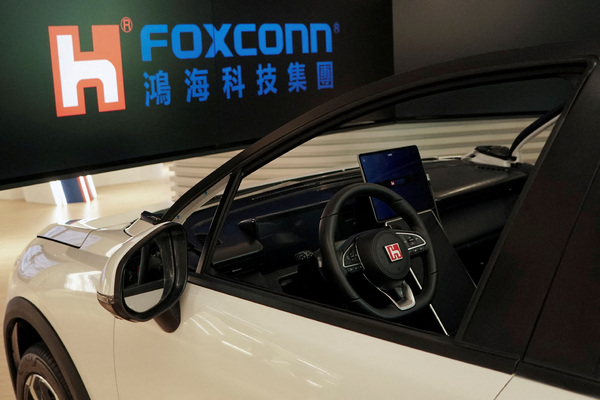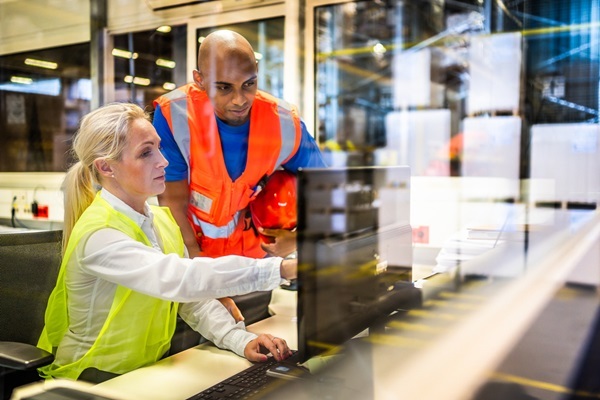Effective onboarding with AI

The first few days in a new job can be stressful for employees and their managers alike, as both work out the realities of what they have agreed to: the strengths and weaknesses of the new worker; the constraints and requirements of the new opportunity; and expectations on both sides..
Companies that recognise this will often have a structured onboarding process in place that goes beyond the formal signing of contracts and nominating next of kin. There are many benefits to this, but ultimately a successful onboarding process should be designed to help new employees understand what it will take for them to succeed in their new role.
However, onboarding is not always positive. Handled badly, a poor onboarding process can leave a worker confused and overwhelmed. Thankfully, organisations that are setting up new onboarding processes, or that are anxious about the effectiveness of their current procedures, can look to smart technology and artificial intelligence for help.
Automating tedious admin
At the very simplest level, AI can automate some of the routine administrative tasks involved in the onboarding process. These might include completing a variety of forms and setting up IT and other accounts.
By automating these tasks, AI frees up HR and other staff such as IT and finance to focus on the more strategic aspects of onboarding, such as building employee engagement and establishing the nature of the tasks they will be expected to undertake. And at the same time, the new employee is freed from dull chores such as repetitive data entry and is enabled to get stuck into the real tasks their new role involves.
Personalised onboarding
Once candidates are hired, AI can be used to create a seamless onboarding experience that is tailored to an individual new employee’s needs. New hires can be given introductions to key team members, guidance on company policies and culture and information about what is expected of them. This will help them to feel part of the organisation in the first hours and days of their new role.
For example, AI-driven chatbots can provide instant support and guidance to new hires throughout the onboarding process. Common questions such as “when will I be paid?” and “when can I have lunch?” can be answered quickly and, where the AI is unable to provide specific guidance, the contact details of appropriate colleagues can be shared.
Sometimes the process of onboarding starts even before the new worker’s joining date. AI can help here too. Before the start date, AI systems can send questionnaires to new employees, to gather information about their preferences, goals and expectations. After appropriate AI-powered analysis, insights into each new employee’s unique circumstances can be generated. This enables HR professionals to tailor onboarding to the individual so that it is maximally effective.
AI can even be used to welcome new employees. This can be particularly important when many people join an organisation at the same time, such as a set of new graduate trainees. If new employees feel that they are getting lost in the crowd, if they feel invisible and unimportant, they will lose confidence. And with lowered confidence they may remain unsure of what is expected of them and how they will be measured. This can be very disheartening.
AI-driven chatbots or virtual assistants can send personalised welcome messages to new hires, treating them as individuals by mentioning personal details, and providing them with essential information about their first day. This can include the schedule of events for new joiners and information about their key contacts, such as other team members. Relevant information delivered in the first few moments of a new hire’s experience with an employer creates a feeling of engagement and, importantly, reduces anxiety.
Typically the onboarding process lasts days (even weeks) rather than hours. AI-powered systems can provide real-time support and feedback on initial performance to new hires as they start to engage with their new role. For employees who are perhaps feeling less than confident, the presence of a non-human, and therefor non-judgemental, colleague during these early days can be comforting.
Where AI is used to interact with employees, the employee should always be made aware of this and given options for human interactions instead.
Setting up success
By using AI in the employee onboarding process, organisations can enhance the efficiency, effectiveness and overall experience of joining a new company, setting up new hires for success from day one.
One of the key elements of employee success is the ability of an organisation to create tailored training plans for each employee. These should ensure that the basic required skills and competencies are obtained.
But in addition, AI can provide managers with a route to building new skills across the organisation: new hires with potential in different areas may be identified by an analysis of their previous experience, their current performance, feedback from the recruiting and onboarding process and even an analysis of their social media activities. Analysis of this wide range of data can identify those individuals with the strengths that will fit them for training in areas where skills are lacking within the organisation, optimising their potential value to the organisation.
At a time of wide-ranging skills shortages, this ability will be highly beneficial. However, organisations must be aware of the requirements of privacy regulations if they undertake this type of deep analysis. The ICO provides useful advice on how employers should monitor workers.
AI has another value here: it can allow new employees some control over their own career development. AI can partner with employees in the identifying and selecting learning opportunities. AI can also monitor a new worker’s successful engagement with career development, even providing confidential advice. In this way, AI can enable new employees to grow and adapt to their roles within the organisation. And by tracking learning outcomes and engagement levels, AI can adjust the pace and content of training materials to ensure that the new employee stays motivated throughout the onboarding process and beyond.
Predictive analysis by AI is also useful. By analysing data from past onboarding experiences, the factors that contribute to a new employee’s success can be teased out. HR teams and managers can then tailor a new employee’s early experiences to maximise the likelihood of their long-term engagement and performance while rapidly identifying those who are perhaps in the wrong role.
Supporting management
Using AI during the onboarding process isn’t only about increasing new employee motivation, however. It is also an effective tool for management. AI can track employee progress and provide feedback on performance and motivation. With insights about key milestones and future-focused performance indicators, HR professionals can identify any areas where improvement is needed early on, while also identifying opportunities to upskill and cross-skill new hires.
This type of real-time feedback based on performance data can be combined with data on trends and patterns in employee performance across the organisation, helping HR professionals identify areas for talent optimisation.
AI is increasingly being used within onboarding. With the right guiderails such as attention to privacy and transparency, these smart technologies can transform the onboarding process from a dull administrative process to a co-ordinated activity that will act as the foundation for a new employee’s success.

Jeremy Swinfen-Green
Related Articles
Most Viewed
Winston House, 3rd Floor, Units 306-309, 2-4 Dollis Park, London, N3 1HF
23-29 Hendon Lane, London, N3 1RT
020 8349 4363
© 2025, Lyonsdown Limited. Business Reporter® is a registered trademark of Lyonsdown Ltd. VAT registration number: 830519543





